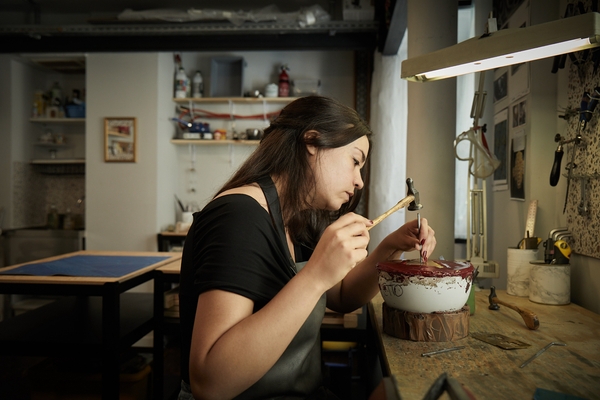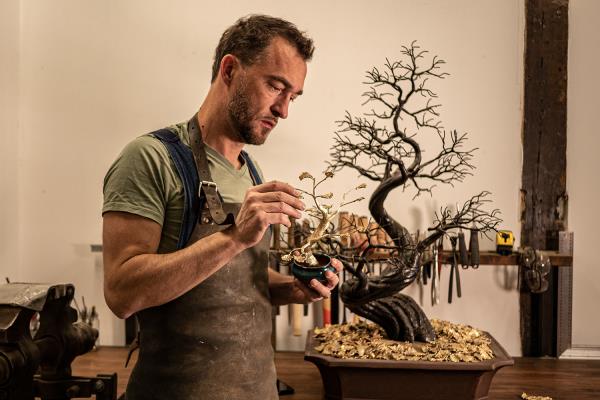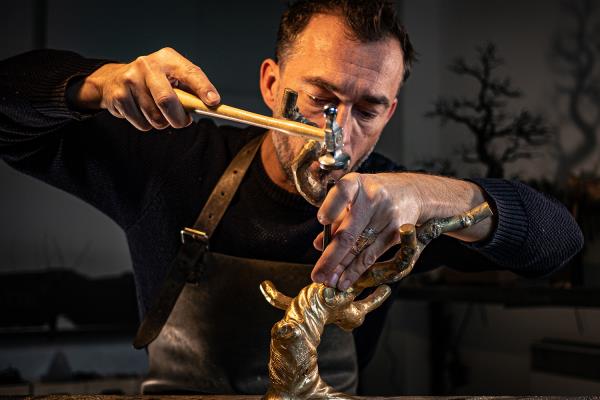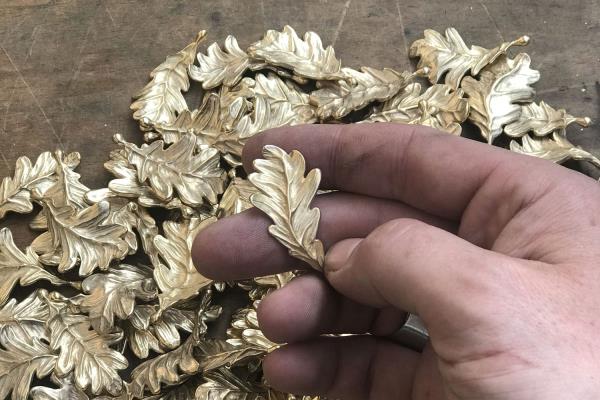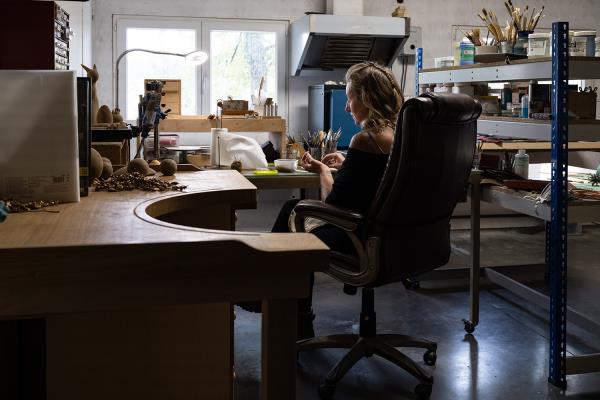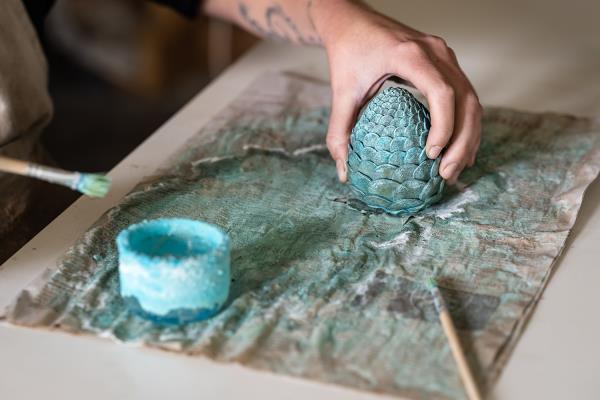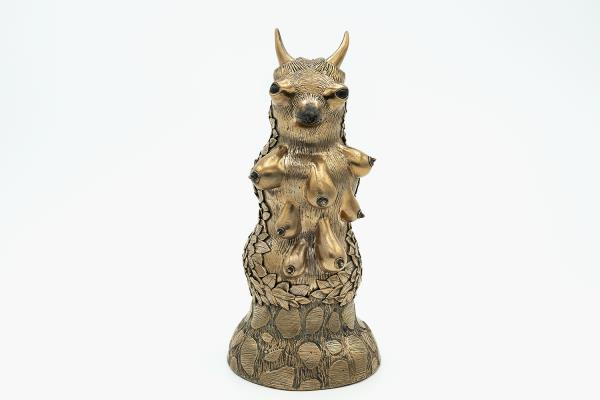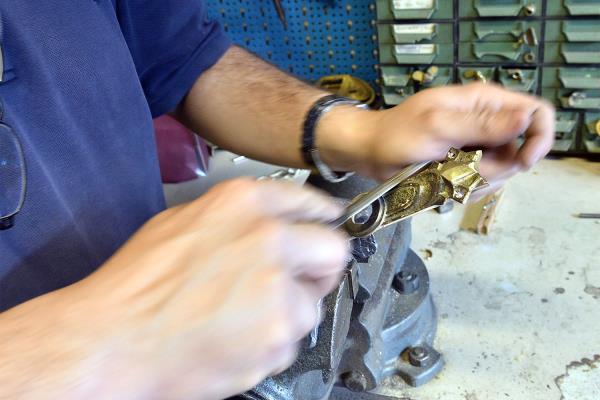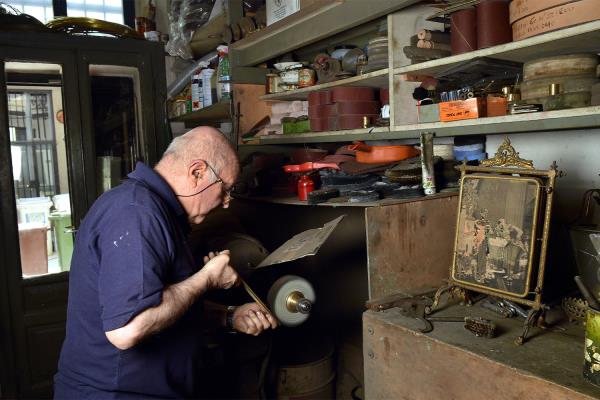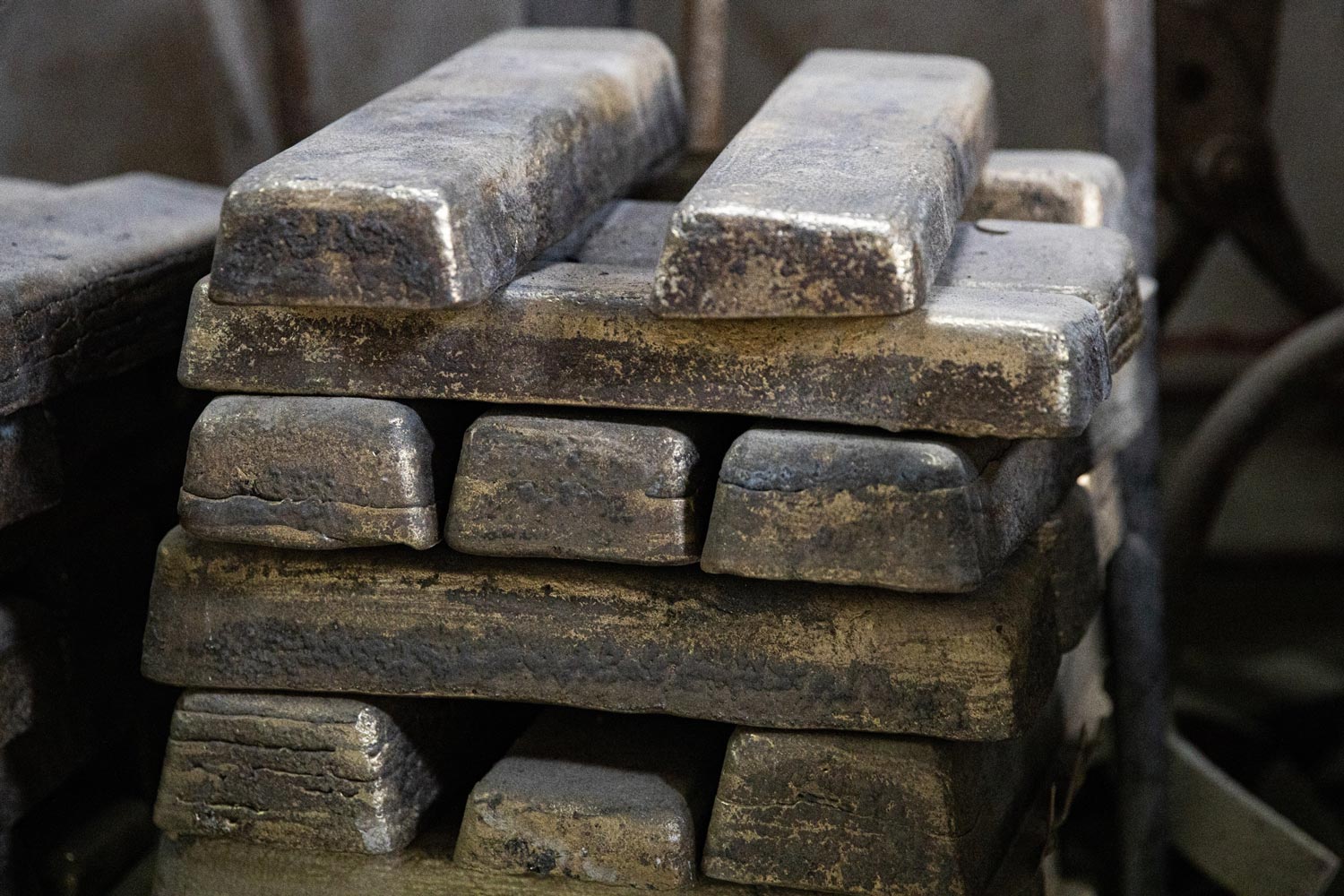
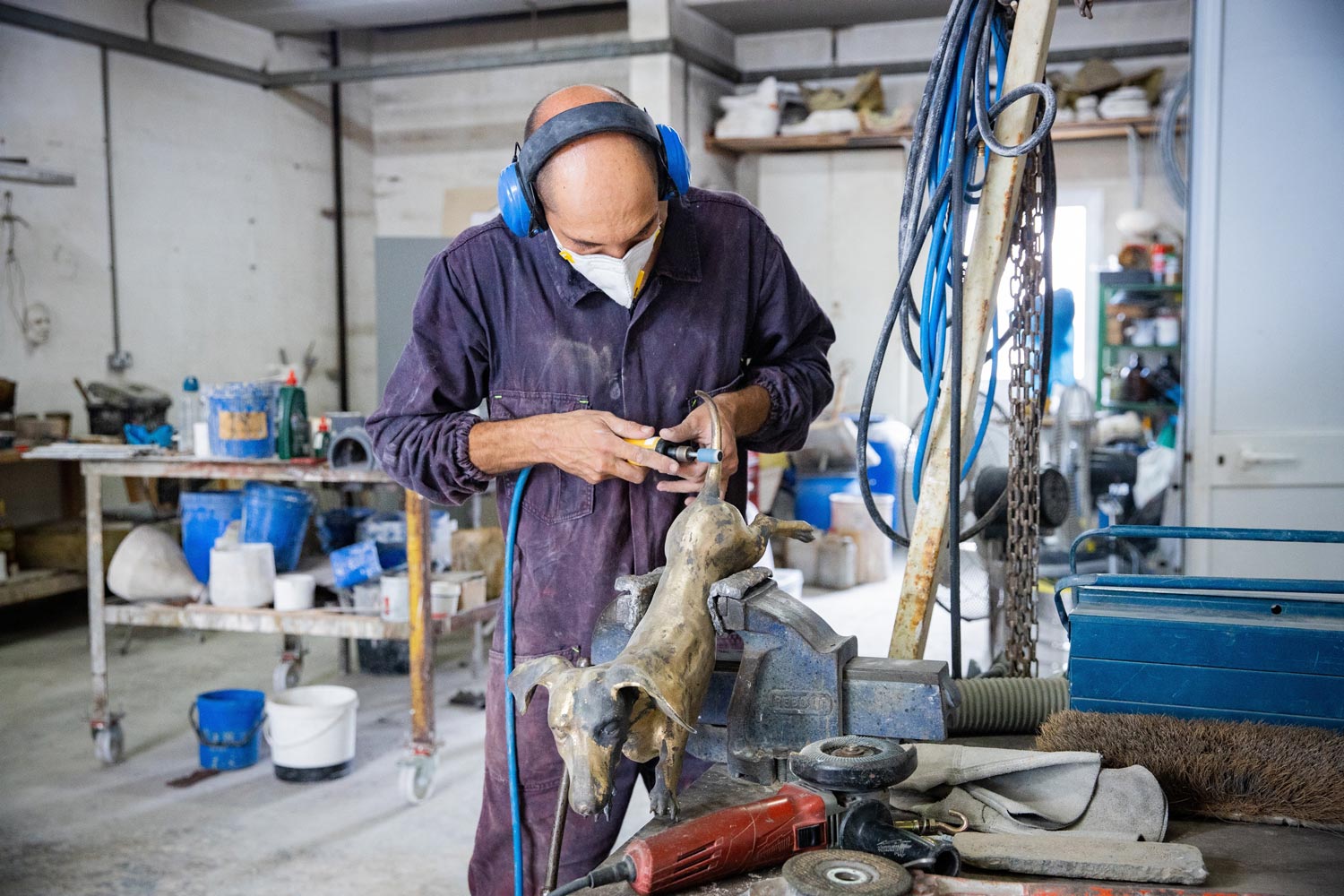
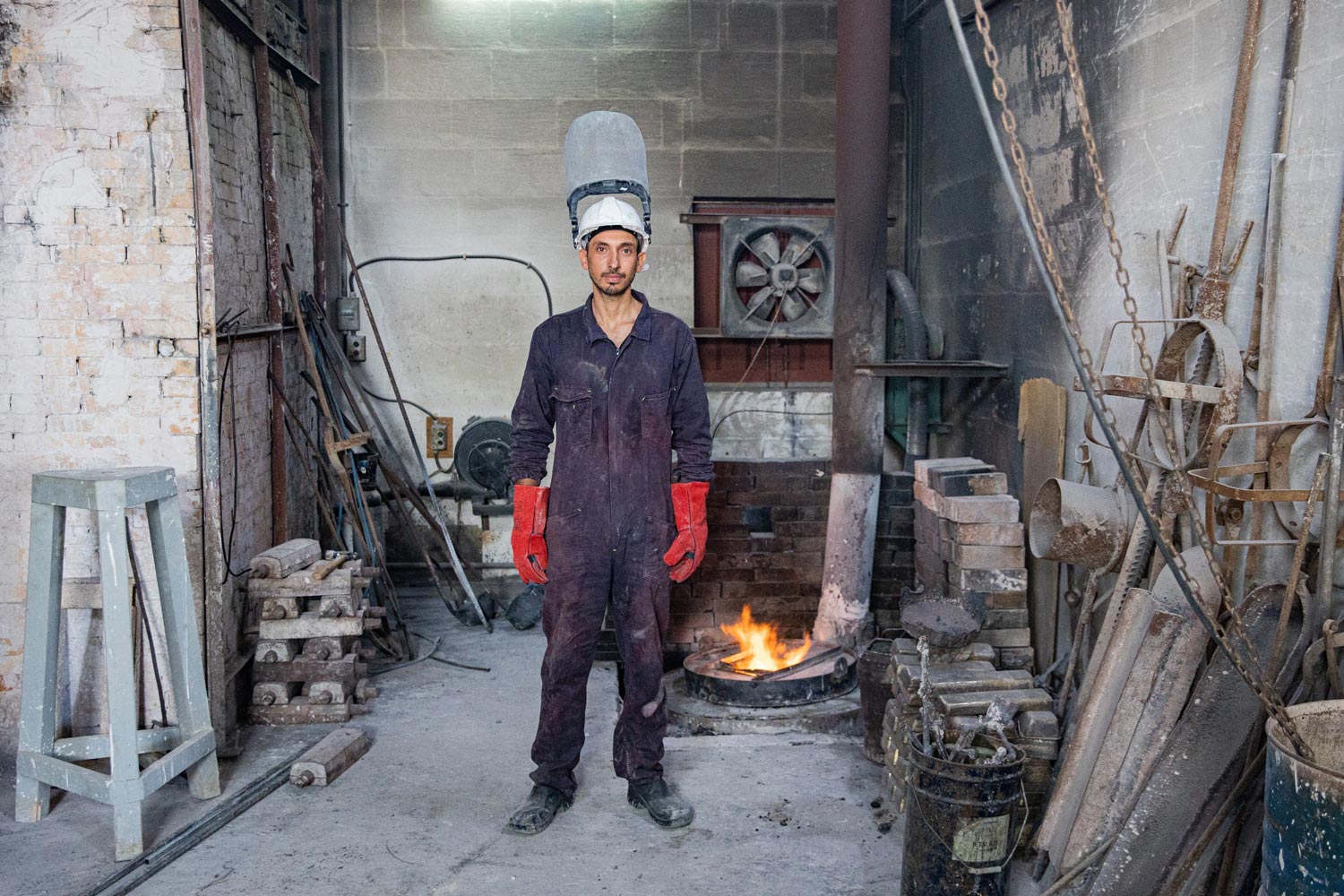
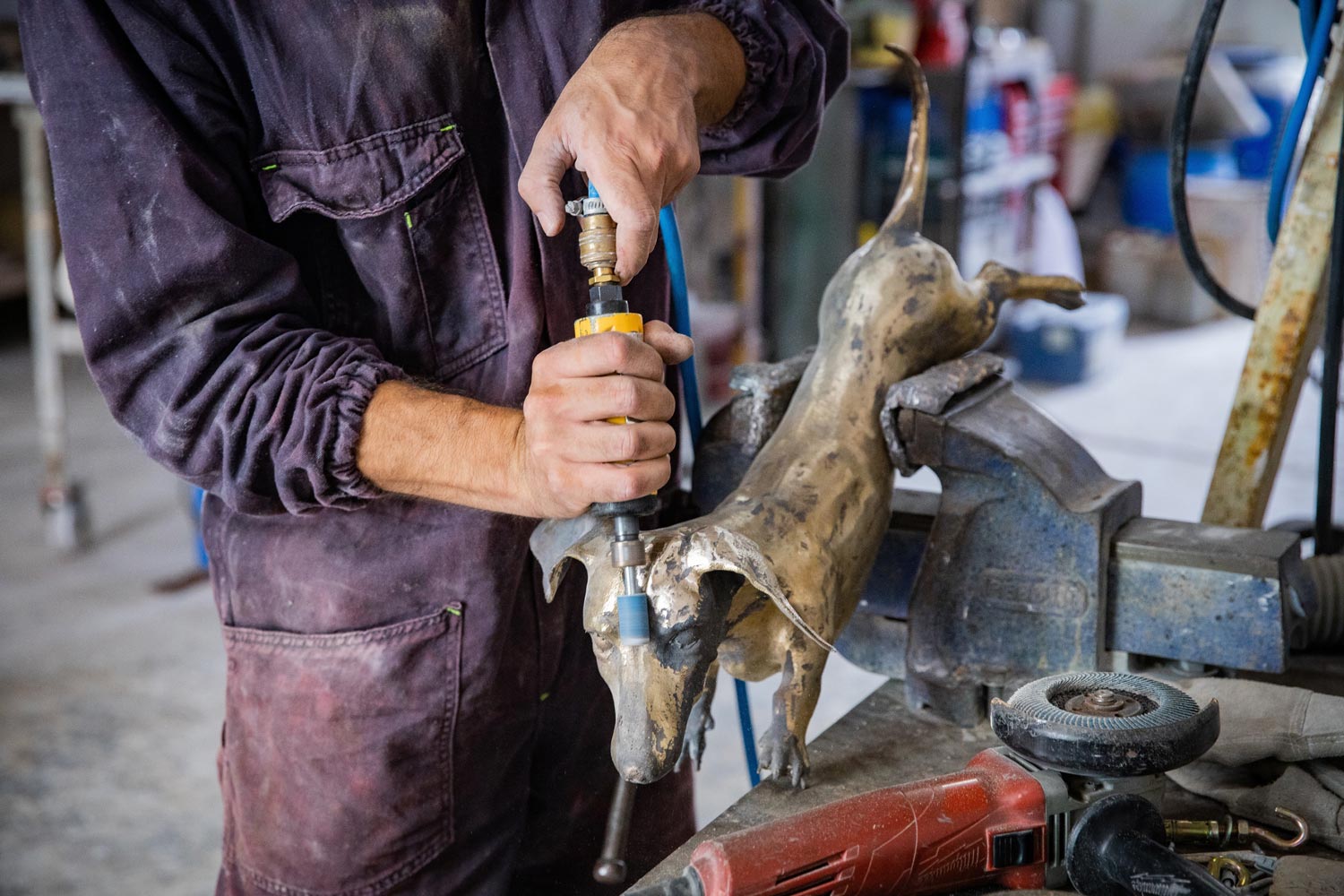
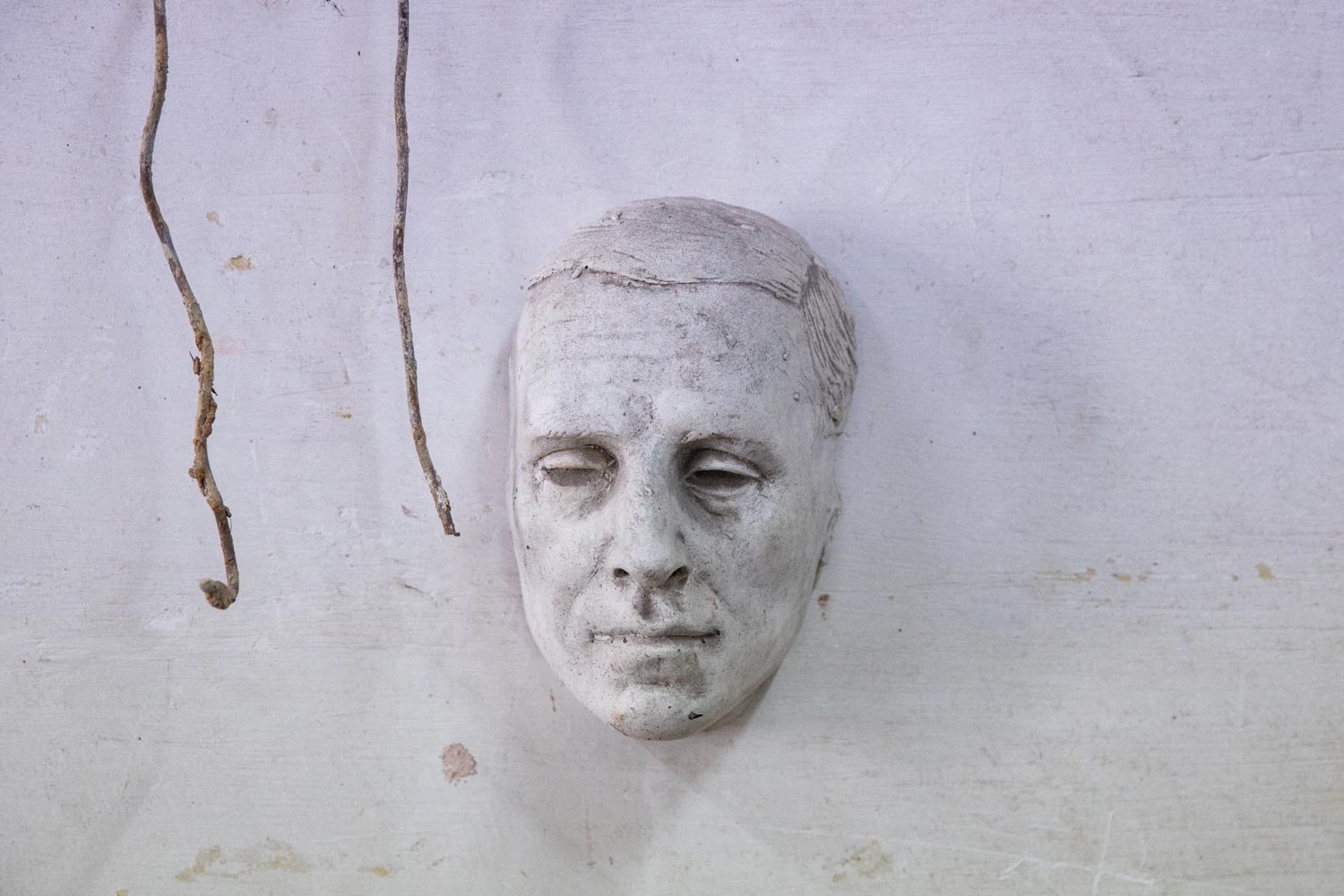





A family connection
- Christopher’s first work was a 50 kilo bell for a medieval chapel
- He is inspired by the Bronze Age and Roman bronzes
- The final patination of a bronze piece is his favourite step
Christopher Chetcuti began his studies as a mechanical engineer at the University of Malta, but he left to pursue the craft of metalworking favouring a less theoretical and more hands-on career. He began working alongside his father at his foundry, delving into the books on the lost wax casting process that his father shared with him. Today, he has balanced his post graduate studies in business management with his craft, dedicating his time to running the foundry. Passionate about passing on the techniques and skills that his father imparted onto him over the years, Christopher now trains apprentices and opens up his workshop to university students. For Christopher, all crafts – not just metalwork – risk being lost if what is created does not appeal to contemporary tastes. He believes creation should be adapted to meet today's needs.
Interview


- How is your craft connected to Malta?
- The materials used to produce our work are not found on the island and must be imported. Sometimes that can be expensive, so we have to adapt other materials that are readily available here. That leads to unique ways in which we perform our craft.
- Why did you specialise in metalwork?
- I didn’t like the prospect of working in an office. My studies were inevitably leading me there. At the same time, my father presented me with the unique opportunity of helping to run the foundry and learning the craft. I took the plunge and never looked back.
- Did you learn the craft from a master?
- Yes, from my father, Joseph Chetcuti. He had learnt lost wax casting while he was studying sculpture in Florence, and later he set up a studio in Malta. I learned everything I know from him and by working at the foundry.
- How would you define something that is "well made"?
- In one word - sincere. Sincere comes from two French words ‘sans cire’, which means ‘without wax’. Traditionally, small holes in the casting were filled after patination with some coloured wax. With the advent of better casting techniques and materials, this technique was phased out, but I still sometimes use it.
Christopher Chetcuti is an expert artisan: he began his career in 2008
Works
Where
Christopher Chetcuti





